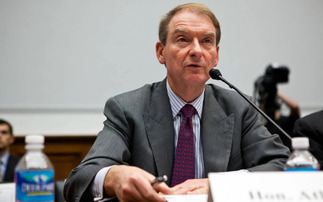Willem Verhagen, senior economist - multi-asset, at NN Investment Partners, discusses the causes and costs of protectionism, and the implications of a trade conflict between the US and China.
Protectionism is essentially a very crude and destructive policy response to a real problem. Over the past 30 years, policymakers have tended to ignore the costs that come with the benefits of an increase in trade openness. The main benefit is that it enables a country to increase the amount of consumption obtained from a given input of production factors. The costs are twofold. First, those who have a big interest in sectors which shrink as a result of more trade openness suffer a loss of income for which they are not always sufficiently compensated. Second, a larger degree of ope...
To continue reading this article...
Join Investment Week for free
- Unlimited access to real-time news, analysis and opinion from the investment industry, including the Sustainable Hub covering fund news from the ESG space
- Get ahead of regulatory and technological changes affecting fund management
- Important and breaking news stories selected by the editors delivered straight to your inbox each day
- Weekly members-only newsletter with exclusive opinion pieces from leading industry experts
- Be the first to hear about our extensive events schedule and awards programmes








